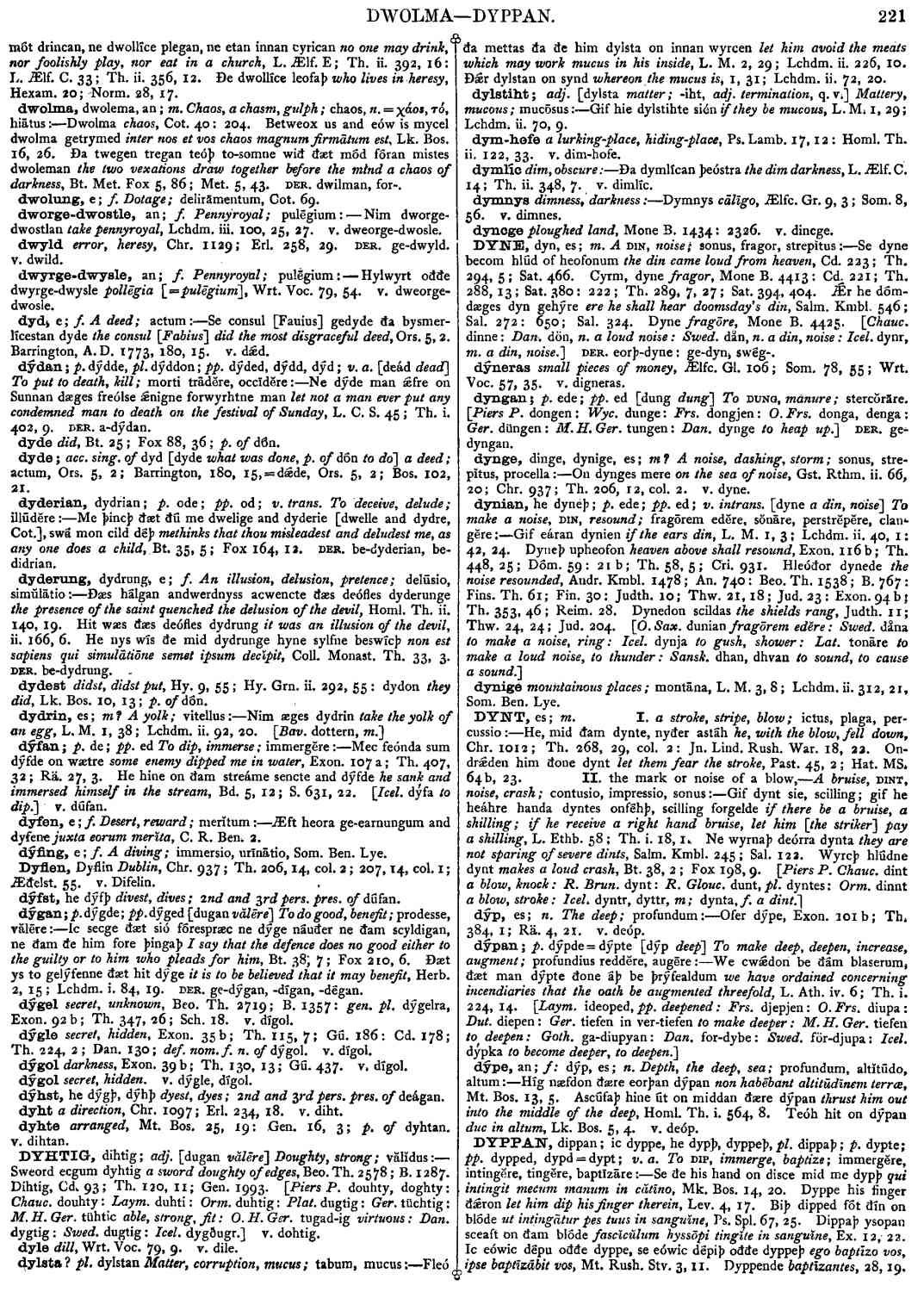dynian
- verb [ weak ]
-
Gif eáran dynien
if the ears din,
- L. M. 1, 3;
- Lchdm. ii. 40, 1: 42, 24.
-
Dynes upheofon
heaven above shall resound,
- Exon. 116 b ;
- Th. 448, 25;
- Dóm. 59: 21 b ;
- Th. 58, 5;
- Cri. 931 .
-
Hleóðor dynede
the noise resounded,
- Andr. Kmbl. 1478 ;
- An. 740: Beo. Th. 1538 ;
- B. 767: Fins. Th. 61 ;
- Fin. 30: Judth. 10 ;
- Thw. 21, 18;
- Jud. 23: Exon. 94 b ;
- Th. 353, 46;
- Reim. 28 .
-
Dynedon scildas
the shields rang,
- Judth. 11 ;
- Thw. 24, 24;
- Jud. 204 .
Bosworth, Joseph. “dynian.” In An Anglo-Saxon Dictionary Online, edited by Thomas Northcote Toller, Christ Sean, and Ondřej Tichy. Prague: Faculty of Arts, Charles University, 2014. https://bosworthtoller.com/8209.
Checked: 1